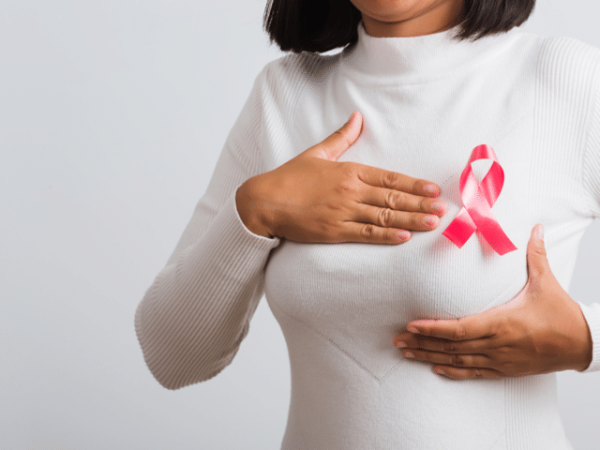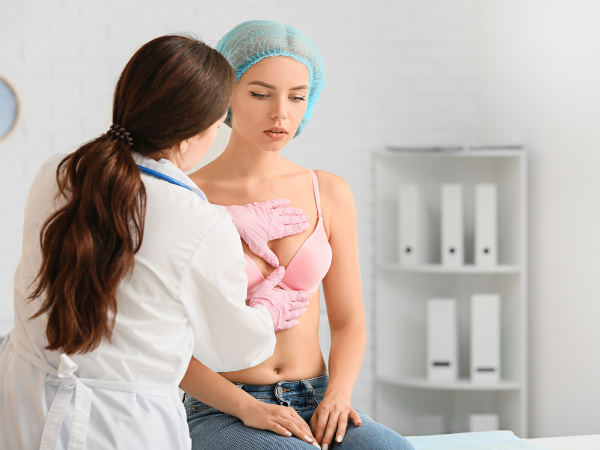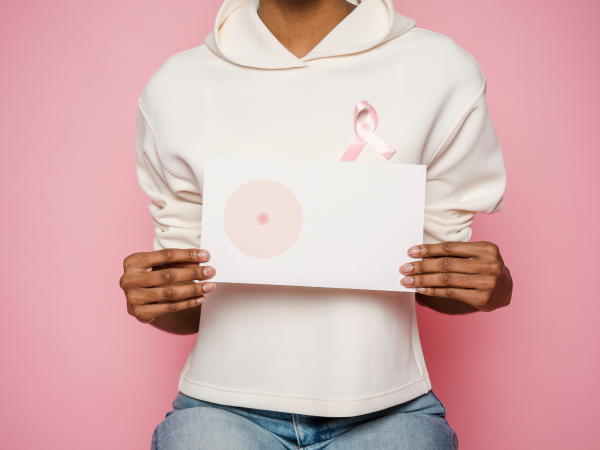
Breast cancer is one of the most common cancers in women worldwide. The 2022 statistics gathered by the World Health Organisation show that around 30% of women are diagnosed with breast cancer each year and it has caused over 6,70,000 deaths to date.
A doctor in the US shares her woes on being affected by breast cancer and also shares her process of self-diagnosis. The doctor in her mid-40s considered herself hale and healthy until her last annual mammogram test. She witnessed no major symptoms and assumed that her chances of getting breast cancer were very low.

She explained that more than having the tests and breast radiation oncology on the day of her diagnosis, she was more worried about being behind on her schedule as a mom of three. She mentioned that she was pretty annoyed with the doctor for suggesting a radiology test because she believed that she could not get breast cancer, however, things took a turn when the radiologist returned with her result.
The doctor was diagnosed with five suspicious masses in her right breast and an abnormal-looking lymph node. The doctor herself had counseled thousands of patients through their breast cancer diagnosis and tried to stay calm when the radiologist informed her about her test results.
She explained that she would have caught symptoms earlier if she was ever diagnosed because she followed routine mammograms. The doctor mentioned that the biopsies of the two biggest masses and the lymph node confirmed breast cancer, following which she underwent bilateral mastectomies and implant reconstruction.

Though her preoperative test suggested that she will not require chemotherapy or radiotherapy, her final pathologist and medical oncologist, who is also her close friend suggested chemo and CDK 4/6 inhibitors to her treatment plan and even put her on medication to reduce her estrogen. To reduce the risk of cancer, the woman was also asked to remove her ovaries.
The woman also mentioned in her ordeal that even finding cancer in the early stages does not discount the trauma of it. She stressed how she would often tell her patients with low-risk breast cancer that their disease likely won’t kill them, and that if they didn’t do radiation at this time, they could do it in the future if the cancer came back because it would presumably be caught early with routine imaging. Reflecting on her lines, she was worried that she found her cancer in the early stages amidst routine checkups.
The doctor soon after her surgery went back to work just after 2 weeks because that was the only time she felt in control over time. "As a physician, I encourage patients to return to their routines as quickly as possible to regain normalcy and get their minds off the diagnosis," she mentioned.
The doctor after starting her chemotherapy worried about how throughout her day at work she spoke or cared for people with breast cancer and at night she worried about her own. "During this time, my only priorities were to go to work and be there for my kids. I rarely went out socially, ordered way too much from Uber Eats, and wasn’t upset if my kids got a bad grade. Cancer forced me to prioritize myself for once, and things that seemed important precancer just fell to the wayside," she explained how the disease changed her thoughts and her priorities.
The doctor also explained how radiation made her gain weight and lose huge chunks of hair. However, she made it through.
 Breast cancer is one of the most common cancers in women worldwide. The 2022 statistics gathered by the World Health Organisation show that around 30% of women are diagnosed with breast cancer each year and it has caused over 6,70,000 deaths to date.
Breast cancer is one of the most common cancers in women worldwide. The 2022 statistics gathered by the World Health Organisation show that around 30% of women are diagnosed with breast cancer each year and it has caused over 6,70,000 deaths to date.

